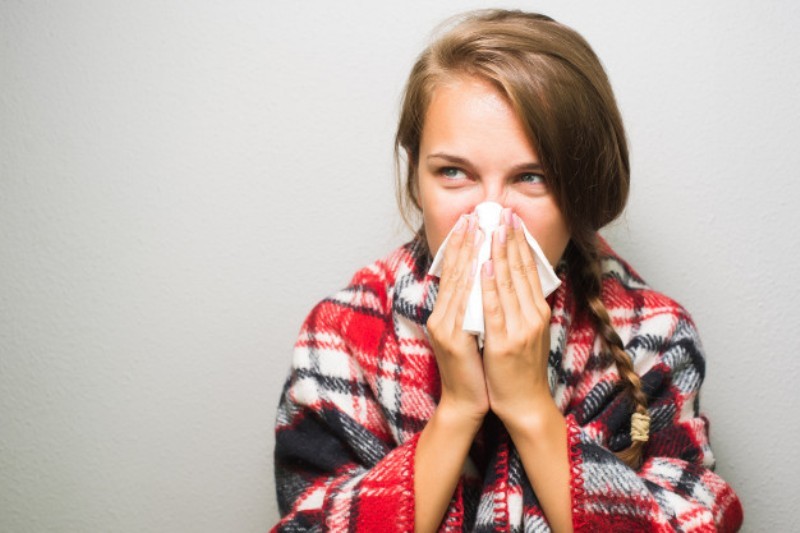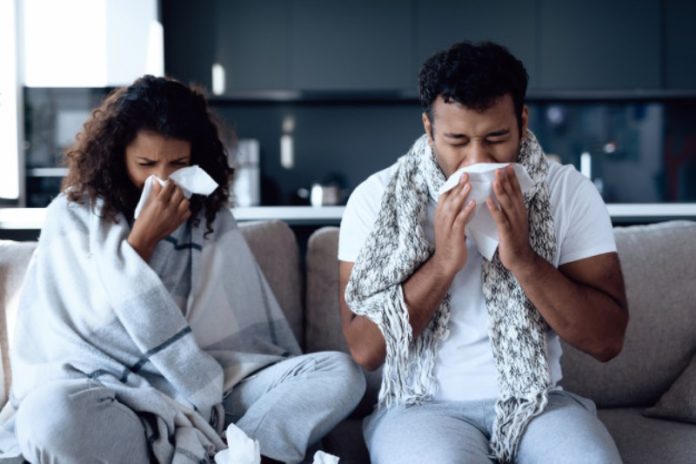The rainy season usually means a person has to cope up with several kinds of infections that can make a person unwell. These common diseases need to be prevented.
The weather keeps changing and during the rainy season one is at risk of developing various diseases. No doubt, it is enjoyable weather as the cool breeze blows, but a person is easily susceptible to various infections during this season. Flooding and stagnant water can indeed be a breeding ground for all sorts of bacteria as well as mosquitoes, thus increasing the transmission of several communicable diseases. Adequate attention needs to be given to common diseases, rainy season problems, and precautions.
Direct contact with polluted water does carry a high risk of infection by waterborne diseases such as dermatitis, conjunctivitis, as well as ear, nose, and throat or wound infections. Eating or drinking anything contaminated by floodwater can rather cause diarrhea. A particular infection that can lead to an outbreak that can spread directly from contaminated water is leptospirosis, a zoonotic bacterial disease—a transmission that occurs when water, damp soil or mud contaminated with rodent urine comes in direct contact with the skin or mucosal membranes.alsoread: Different types of skin diseases
Flooding may indeed lead to an increase in the indirect transmission of diseases via the expansion in the number as well as a range of breeding grounds for organisms that do transmit pathogens or parasites. Standing water that has been caused by heavy rainfall or river overflows can serve as breeding sites for mosquitoes, and thus increase the chances of exposure to infections such as dengue, malaria, chikungunya or Japanese encephalitis. Flooding may initially tend to flush out mosquito breeding, but it does come back in force when the water. recede. Common diseases, rainy season problems, and precautions cannot be negated.

Prevention and Control:
Basic precautions need to be taken by people traveling to or living near risk areas. To protect oneself, one’s family, and one’s community:
• Always maintain good hygiene (handwashing) after contact with flood water;
• Do not allow children to play in floodwater areas.
• Wash children’s hands quite frequently (always before meals).
• Make sure children do not play with toys that have been contaminated by floodwater and have not been disinfected.
The closeness of mosquito breeding sites to human habitation is no doubt an important risk factor for diseases that these species transmit. Disrupting the mosquito life cycle as well as habitat that may also reduce the number of mosquitoes around oneself and one’s environment.
Standing water needs to be removed to prevent a breeding ground for mosquitoes.
• Puncture the unusable tires in the yard to prevent pools of water from forming inside them.
• Wipe out the bird-bath and pet water bowls every few days.
• Keep grass as well as shrubs trimmed short. Flying mosquitoes cannot rest on account of it.
• It is better to add mosquito fish to one’s water garden or small pond in case it is not connected to natural water.
• During outbreaks, insecticides may be sprayed to kill flying mosquitoes.
To prevent mosquito bites:
• Cover exposed skin by wearing long-sleeved shirts, long pants, and hats.
• Make use of an appropriate insect repellent as directed to exposed skin or on clothing.
• Always try to follow product directions and re-apply in strict accordance with product label instructions.
• In case a person is making use of sunscreen, apply sunscreen first and insect repellent second.
• Follow package directions when applying repellent on children. Avoid applying repellent to one’s hands, eyes, as well as mouth.
• Stay as well as sleep in screened or air-conditioned rooms.
• Use a bed net in case the area where one happens to be sleeping is exposed to the outdoors.
• Mosquito coils or other insecticide vaporizers can also reduce indoor biting.
How can we prevent this?
• It was advisable to wear slippers or shoes when walking along with flood or stagnant water.
• It is better to avoid exposure to flood water if a person is suffering from an open wound.
• Cover clean, open wounds with a waterproof bandage to reduce the chances of infection.
• Open wounds need to be clean as possible by washing well with soap as well as clean water.
• If a wound does develop redness, swelling, or drainage, seek immediate medical attention.
The focus needs to be on safety-conscious. It is necessary to wear appropriate footwear that permits better traction; Avoid wearing shoes or slippers that have worn, smooth soles or high heels during the rainy weather. Being alert as well as responsible for one’s surroundings is the surest way to reduce these different diseases.
Thus common diseases, rainy season problems, and precautions required to be given due importance during the rainy season.

